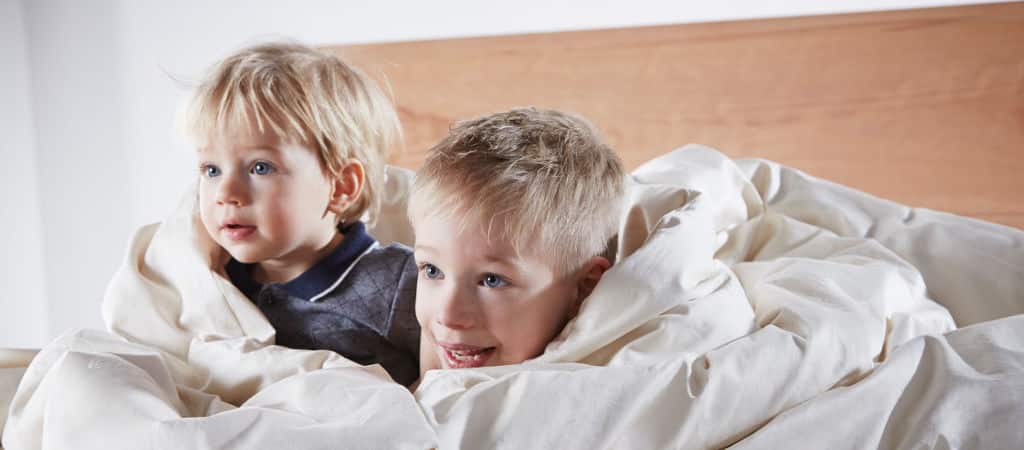Long since, it is a known fact that our brain is active during sleep. In recent studies, researchers from the University of Tübingen, Germany, and scientists of the Max-Planck-Institute for Cognition and Neuro-Science, Leipzig, Germany co-operated in examining the influence of sleep on language acquisition in early childhood. Parents and their babies (age from 9 to 16 months) participated in the study in which the brain activity of the infants where recorded by EEG. This enabled the scientists to draw conclusions on the memory.
During a learning phase, the scientists showed the babies pictures with invented shapes. At the same time, the babies heard the also invented names of the pictures. Similar objects that only differed by their color, e.g., had the same names. In the end of the learning phase the children had learned the names of the single objects, independent from their age. At that time, they were not able to assign new objects to similar objects they already knew.
In the following test phase they babies were divided into two different groups. The first group slept for two hours after the learning phase, the other group remained awake. After these two hours, the babies from the second group had forgotten the names of the objects.
A completely different situation with the “sleeping babies”: these children were not only able to recall the objects and their names. After the rest they were able to assign new objects to the names of known objects. Conclusion: during sleep, most likely new categories get formed. A proof, that sleep is not only important for our memory but also for structuring of the brain.
Imagesource: @Fotolia
Source: Max-Planck-Institut für Kognitions- und Neurowissenschaften | www.cbs.mpg.de/251986/20150129-01?print=yes


This post is also available in / Diesen Beitrag gibt es auch in:


Leave a Reply